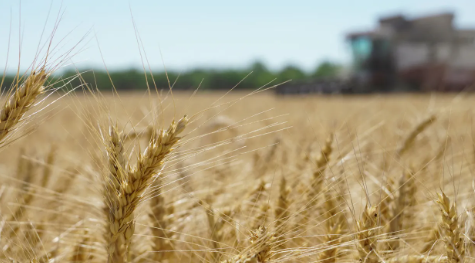In a report prepared by the BBC, following Russia's decision to suspend its participation in the grain export agreement, the issue of securing bread became prominent in the Middle East, considering that Russia and Ukraine are the largest wheat exporters. This situation indicates a catastrophic reflection for a region that primarily relies on bread for its daily food. The report states: "Russia ranks first in exporting wheat to the Middle East, while Ukraine ranks third, and together they account for a quarter of the global wheat production."
Egypt is the largest wheat importer in the world, with Russia covering 60 percent of Egypt's wheat needs, while Ukraine meets approximately 30 percent of its requirement. In the context of the agreement with the World Bank to import wheat, Lebanon has started sourcing from other suppliers, especially since the World Bank no longer deals with Russia. However, importing from these sources may take longer than sourcing from Ukraine.
According to economists, eight countries in the Middle East and North Africa are at risk of a bread crisis due to the tensions between Russia and Ukraine. With global wheat prices rising, countries such as Morocco, Egypt, Lebanon, Yemen, Libya, Malaysia, Indonesia, and Bangladesh are threatened by increased bread prices. Yemen and Libya import 22% and 43% of their total wheat consumption from Ukraine, respectively, while Ukraine also exported over 20% of its wheat to Malaysia, Indonesia, and Bangladesh in 2020.
Recently, more than 40% of Ukraine's annual maize and wheat shipments have been directed to the Middle East or Africa. Additionally, the historical droughts in those countries last year have exacerbated the need for grains, coinciding with rising local food prices. The escalating tensions along the Russia-Ukraine border have driven Chicago-traded wheat futures up by more than 7% in January to around $8 per bushel. Ukraine is known as "the breadbasket of Europe," responsible for 10% of the world's wheat exports.




